6-1. Once again. The first 3 text lines on side a of the E
tablet carries 100 glyphs:
|
ALCYONE (*56
→ 2 * 28) |
a1 |
32 |
32 |
|
BETELGEUZE
(*88) |
a2 |
33 |
65 |
|
NAOS (*121
→
11 * 11) |
a3 |
35 |
100 |
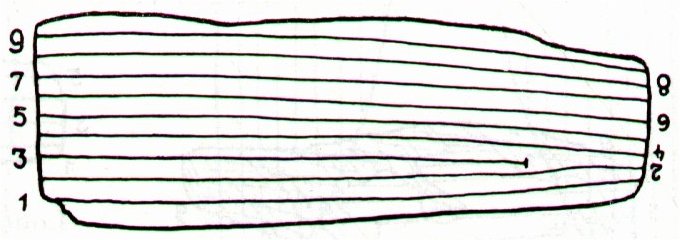 |
|
TANIA
AUSTRALIS (*156 → 2 * 78) |
a4 |
36 |
78 |
|
PORRIMA
(*191) |
a5 |
42 |
|
NUSAKAN (*156
+ *78) |
a6 |
39 |
156 |
|
NASH (*273 →
3 * 91) |
a7 |
39 |
Thus the Southern Gazelle
(Tania Australis, *156, located at the 2nd glyph in line
Ea4) seems to have played checkers with the Lion
and won:
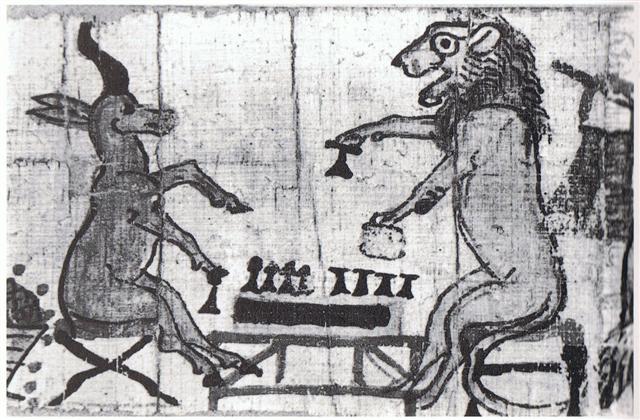
The Lion might have lost 100 days corresponding to the
sequence of 100 glyphs which ended 'Brutally' after 3
text lines.
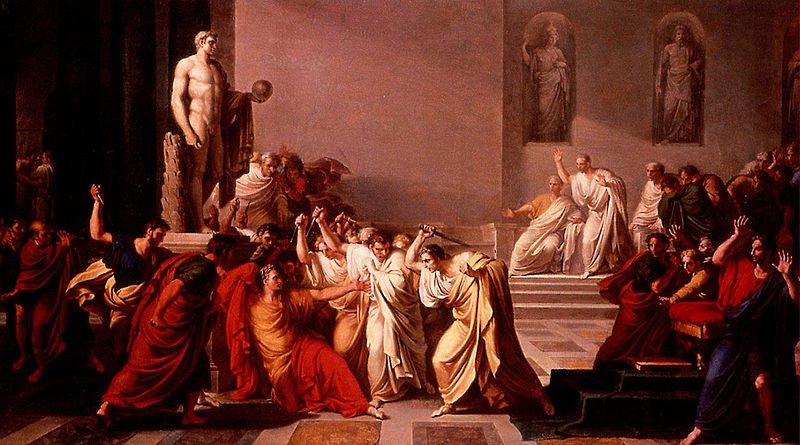
And the basic idea could have been inherited from ancient Egypt,
where it was Ra who had been defeated and lost 5 days:
... Nut, whom the Greeks sometimes
identified with Rhea, was goddess of the sky, but it was
debatable if in historical times she was the object of a
genuine cult. She was Geb's twin sister and, it was
said, married him secretly and against the will of Ra.
Angered, Ra had the couple brutally separated by Shu and
afterwards decreed that Nut could not bear a child in
any given month of any year. Thoth, Plutarch tells us,
happily had pity on her. Playing draughts with the Moon,
he won in the course of several games a seventy-second
part of the Moon's light with which he composed five new
days. As these five intercalated days did not belong to
the official Egyptian calendar of three hundred and
sixty days, Nut was thus able to give birth successively
to five children: Osiris, Haroeris (Horus), Set, Isis
and Nepthys ...
On the other hand, possibly the Moon perspective from south
of the equator (the 'girdle') required an extention of the
Sun calendar
with 100 days, because down in the southern hemisphere it
was the Moon who ruled instead of the Sun (Ra).
... Then occurred a curious
event. Whether Atea had wearied of bringing
forth offspring we are not told, but certain it is
that Atea and her husband Fa'a-hotu
exchanged sexes. Then the [male] eyes of Atea
glanced down at those of his wife Hotu and
they begat Ru. It was this Ru who
explored the whole earth and divided it into north,
south, east, and west ...
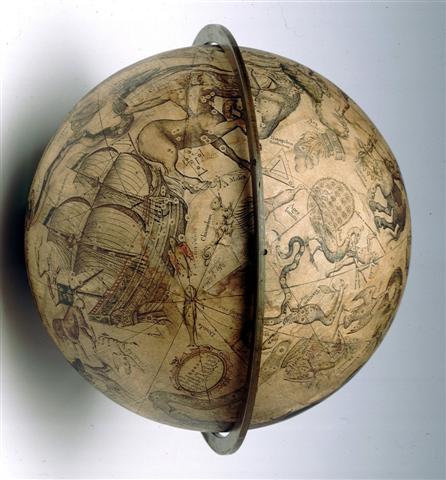
Alcyone rose
with the Sun in day 80 + *56
→ 136 and 136 + 100 =
236 = 8 * 29½ → 80 + *156.
|
N |
ALCYONE |
*56 |
136 |
|
S |
TANIA
AUSTRALIS |
*156 |
236 |
355 (December solstice) + 100 = 455:
|
March 30 (454 → 2 * 227) |
31 |
April 1 (91) |
 |
 |
 |
|
Ea5-1 (137) |
Ea5-2 |
Ea5-3 |
|
Tagata oho |
te henua |
te hau tea |
|
Egyptian courtyard |
 |
Phoenician heth |
 |
Greek eta |
Η (η) |
Oho.
1. To go: ka-oho! go! go away!
(i.e. 'goodbye' said by the person staying
behind); ka-oho-mai (very often
contracted to: koho-mai), welcome!
(lit.: come here); ku-oho-á te tagata,
the man has gone. Ohoga, travel,
direction of a journey; ohoga-mai,
return. 2. Also rauoho, hair. Vanaga.
1. To delegate; rava oho, to root. 2.
To go, to keep on going, to walk, to depart,
to retire; ka oho, begone, good-bye;
oho amua, to preced; oho mai,
to come, to bring; oho arurua, to
sail as consorts; hakaoho, to send, a
messenger. 3. Tehe oho te ikapotu, to
abut, adjoin; mei nei tehe i oho mai ai
inei te ikapotu, as far as, to; kai
oho, to abstain, to forego; hakaoho,
to put on the brakes. 4. The head (only in
the composite rauoho, hair).
Churchill. |
|
ξ
Phoenicis (9.0),
ρ
Tucanae (9.1),
DENEB KAITOS (Tail of the Sea Beast) = β
Ceti, η Phoenicis (9.4), AL NITHĀM (String
of Pearls) = φ¹ Ceti
(9.6)
*9.4 - *41.4 = *150.0 - 182.0 =
- *32.0 |
ACHIRD (Woman with Luminous Rays) =
η
Cassiopeiae
(10.7) |
Legs-15 (Wolf)
ν
Andromedae (11.0),
φ²
Ceti (11.1),
ρ Phoenicis (11.2),
η
Andromedae (11.4)
*335.0 = *11.4 - *41.4 |
|
Al Áwwā'-11 (The Barker)
/
Shur-mahrū-shirū-18 (Front or West Shur)
SOMBRERO GALAXY = M104 Virginis
(191.1),
ρ Virginis (191.4), PORRIMA = γ Virginis,
γ
Centauri (191.5)
*150.0 = *191.4 - *41.4 |
ι Crucis (192.2), β Muscae (192.5),
MIMOSA = β Crucis
(192.9) |
No star listed (193) |
|
Sept 28 |
29 |
30 (273 → 3 * 19) |
|
η Andromedae |
*180.0 |
ρ Virginis |
|
*11.4 |
*191.4 |
|
*335.0 - *150.0 = *185.0 |
|
366 (January 1) + 100 = 466:
|
April 11 (101, 466) |
12 |
13 → 14 * 29½ |
|
...
According to the reform, the 5-day 'Opening
of the Year' ceremonies would
include an additional 6th day every
fourth year. The reason given was that
the rise of Sothis advances to
another day in every 4 years, so
that attaching the beginning of the year
to the heliacal rising of the star
Sirius would keep the calendar
synchronized with the seasons ... |
 |
 |
 |
|
Ea5-13 → 19 * 27 |
Ea5-14 (150) |
Ea5-15 |
|
te mauga |
te hau tea |
te manu |
|
Maúga. 1. Last;
aga maúga o te Ariki o Hotu Matu'a,
King Hotu Matua's last work. 2. Hill,
mountain. Mouga, moúga. Last;
vânaga moúga o te Ariki O Hotu Matu'a,
the last words of King Hotu Matu'a.
Vanaga. Mauga kore, impalpable.
Mouga. 1. Enough, that's all, at
last. 2. Mountain, ridge of hills;
mouga iti, hillock; tua mouga,
mountain top; hiriga mouga;
hillside, declivity, slope. P Pau.:
mahuga, mountain. Mgv.: mou,
maga, mountain. Mq.: mouna,
mouka, peak or crest of a
mountain. Ta.: maua, moua,
mountain. 3. Extinction, end,
interruption, solution; te mouga o te
hiriga, end of a voyage; pagaha
mouga kore, without consolation. 4.
To get. Churchill |
|
INVISIBLY CLOSE TO THE SUN: |
|
δ Phoenicis (21.5) |
υ Andromedae (22.9) |
ACHERNAR (End of
the River) =
α
Eridani
(23.3),
χ
Andromedae (23.6),
τ
Andromedae (23.9) |
 |
|
REVERSED NAKSHATRA → CLOSE TO THE FULL MOON: |
|
Oct 10 |
11
(284 = 467 - 183) |
12 (103
+ 182 = 285) |
|
71 VIRGINIS
(203.6) |
No star listed (204) |
HEZE =
ζ
Virginis
(205.0),
SOUTHERN PINWHEEL GALAXY = M83 Hydrae
(205.7) |
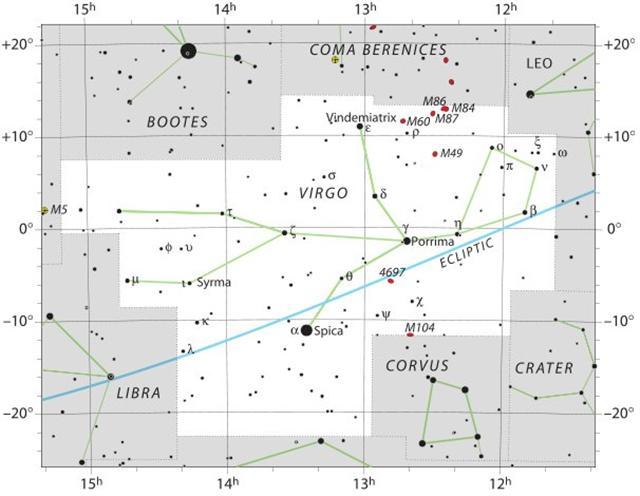 |
If this is a correct interpretation of what was
in the mind of the creator of the E text, then
we should be able to go on with no major
problems until the beginning of line Ea8.
... On the first day of the month of September
('Hora Nui') they went up to the yam plantation
of Kuukuu. After they had departed from Pu
Pakakina they reached Vai Marama and met [he
piri] a man. Ira asked [he ui a Ira],
'How many are you?' [hokohia koe]. He
answered, 'There were two of us' [hokorua
Maua]. Ira continued asking, 'Where is [hē]
he (the other)?' To that he answered,
'The one died.' [ku mate ana]. Again Ira
asked, 'Who has died?' [koai i mate] He
replied, 'That was Te Ohiro A Te Runu.' Ira
asked anew [he ui hokoou], 'And who are
you?' [koai koe] He answered [he ki
mai], 'Nga Tavake A Te Rona' ... [E:46]
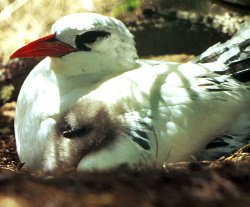
... This island was once a
great land. The reason it became so small is
because Uoke
lifted the earth
with a (mighty) pole and then let it sink (into
the sea). It was because of the very bad people
of Te Pito O Te Henua that Uoke
lifted the land (and let it crumble) until it
became very small. From the uplifted Te Pito
O Te Henua, (they) came to the landing site
of Nga Tavake, to Te Ohiro.
In Rotomea (near Mataveri) they
disembarked and climbed up to stay at Vai
Marama (a waterplace near Mataveri).
During the next month, they moved on to Te
Vare (on the slope of the crater Rano Kau).
When they saw that the (land-) lifting Uoke
also approached (their present) island, Nga
Tavake spoke to Te Ohiro: 'The land
is sinking into the sea and we are lost!' But
Te Ohiro warded off the danger with a magic
chant. In Puku Puhipuhi, Uoke's
pole broke, and, in this way, at least Nga
Tavake's landing site remained (of the
formerly great land) ...
Ga.
Preposed plural marker of
rare usage. 1. Sometimes used with a few nouns
denoting human beings, more often omitted. Te
ga vî'e, te ga poki, the women and the
children. Ga rauhiva twins. 2. Used with
some proper names. Ga Vaka, Alpha and
Beta Centauri (lit. Canoes). Vanaga.
Tava. Tavatava,
pale. Tavake,
sea bird, white, with rosy tail; its feathers
were used to decorate hats and belts. Vanaga.
Mgv.: A shellfish. To.: tava-amanu, id.
Tavake, a seabird with a long red tail.
Mq.: toavake, toae, the tropic
bird. Sa.: tava'e, id. Ta.: Tavare,
to trick, to dupe. Mq.: tavae, to cajole,
to flatter. Ma.: taware, to dupe, to
fool.. Mq.: Tavatava, a fish. Sa.:
tavatava, id. Ha.: kawakawa, id.
Churchill. Tavari, the
plant Polygonum acuminatum grows on the
crater lakes in close association with rushes
and seems to have been used for medicinal
purposes. Barthel 2.
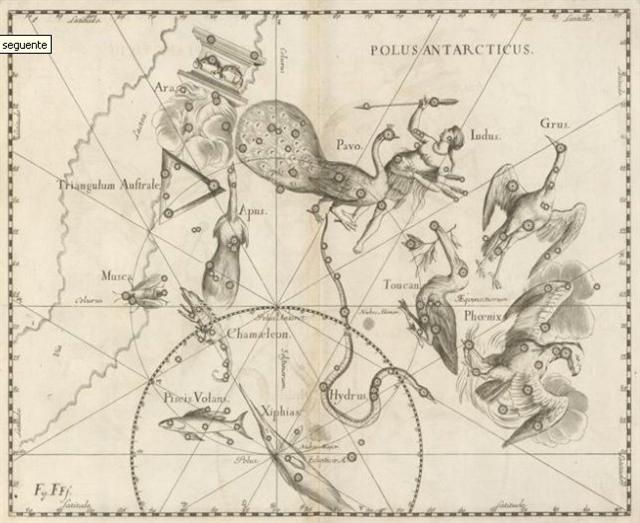
And
the curious missing legs beyond day 456 (April
1, 91 + 365), when the Full Moon should ideally
be observed 100 nights before
Nash (*273), could
be explained as an allusion to the 15th Chinese
station Legs:
|
March 30 |
31 |
April 1
(91) |
 |
 |
 |
|
Ea5-1 (137) |
Ea5-2 |
Ea5-3 |
|
Tagata oho |
te henua |
te hau tea |
|
Egyptian courtyard |
 |
Phoenician heth |
 |
Greek eta |
Η
(η) |
Oho. 1. To go:
ka-oho! go! go away! (i.e.
'goodbye' said by the person
staying behind); ka-oho-mai
(very often contracted to:
koho-mai), welcome!
(lit.: come here); ku-oho-á
te tagata, the man has gone.
Ohoga, travel, direction
of a journey; ohoga-mai,
return. 2. Also rauoho,
hair. Vanaga. 1. To delegate;
rava oho, to root. 2. To go,
to keep on going, to walk, to
depart, to retire; ka oho,
begone, good-bye; oho amua,
to preced; oho mai, to
come, to bring; oho arurua,
to sail as consorts; hakaoho,
to send, a messenger. 3. Tehe
oho te ikapotu, to abut,
adjoin; mei nei tehe i oho
mai ai inei te ikapotu, as
far as, to; kai oho, to
abstain, to forego; hakaoho,
to put on the brakes. 4. The
head (only in the composite
rauoho, hair). Churchill. |
|
ξ
Phoenicis (9.0),
ρ
Tucanae (9.1),
DENEB KAITOS (Tail of the Sea
Beast) =
β
Ceti,
η
Phoenicis
(9.4),
AL NITHĀM (String of Pearls) =
φ¹
Ceti
(9.6)
*9.4 - *41.4 = *150.0 - 182.0 =
- *32.0 |
ACHIRD (Woman with Luminous
Rays) =
η
Cassiopeiae
(10.7) |
Legs-15 (Wolf)
ν
Andromedae (11.0),
φ²
Ceti (11.1),
ρ Phoenicis
(11.2),
η
Andromedae (11.4)
*335.0 = *11.4 - *41.4 |
|
Al Áwwā'-11 (The Barker)
/
Shur-mahrū-shirū-18 (Front or
West Shur)
SOMBRERO GALAXY = M104 Virginis
(191.1),
ρ Virginis (191.4), PORRIMA = γ
Virginis,
γ
Centauri (191.5)
*150.0 = *191.4 - *41.4 |
ι Crucis (192.2), β Muscae
(192.5),
MIMOSA = β Crucis
(192.9) |
No star listed (193) |
|
Sept 28 |
29 |
30 (273 → 3 * 19) |
|
April 2 (92 → 184 / 2) |
3 (458 → 229 * 2 → *378) |
4 (454 + 5) |
 |
 |
 |
|
Ea5-4 (140) |
Ea5-5 |
Ea5-6 |
|
kua hanaga
hia |
te ragi |
te hau tea |
|
Hana. Warmth, heat,
suffocation (mahana).
Churchill. Ta.: Hanahana,
splendid, illustrious,
glory. Ma.: hana, so
shine, to glow. Churchill.
Mq.: Hanamana,
miracle, a wonder. Ha.:
hanamana, id. Churchill. |
|
CIH (Whip)
= γ Cassiopeiae,
λ Tucanae (12.4),
φ³ Ceti (12.6), μ Andromedae
(12.8)
*336.0 = *12.4 - *41.4 = 4 *
84 |
φ4 Ceti (13.2) |
No star listed (14) |
|
... The
sense of top lies in the
fact that the bud end of a
coconut shell is used for
spinning, both in the sport
of children and as a means
of applying to island life
the practical side of the
doctrine of chances. Thus it
may be that in New Zealand,
in latitudes higher than are
grateful to the coconut, the
divination sense has
persisted even to different
implements whereby the
arbitrament of fate may be
declared ...
... At
the beginning of 44 B.C. -
when Ceasar was still alive
- the Senate decided to
raise statues of him in all
the temples and to sacrifice
to him on his birthday in
the month Quintilis,
which in honour of him was
renamed July. He was raised
to the status of a god
(among the other gods of the
state) under the name
Jupiter Julius. Marcus
Antonius, who this year was
consul together with Caesar,
became high priest and
responsible for the
ceremonies. In the middle of
February, at the time of the
old feast of Lupercalia
[Lupus = Wolf], he
ran around naked and whipped
the Roman ladies with thongs
made from goat-skin [februa],
in order to promote their
fertility ...
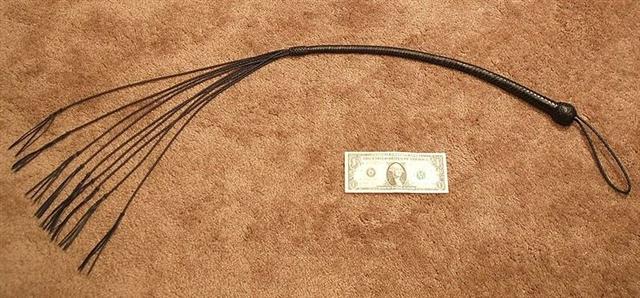 |
|
κ
Crucis (194.4),
ψ
Virginis (194.5),
μ
Crucis,
λ
Crucis (194.6),
ALIOTH (Fat Tail) =
ε
Ursae Majoris,
ι
Oct.
(194.8)
*153.0 = *194.4 - *41.4
→
17 * 9 |
MIN-EL-AUVA
(Door of the Barker) =
δ
Virginis
(195.1),
COR CAROLI =
α
Canum Ven.
(195.3) |
δ
Muscae (196.5) ,
VINDEMIATRIX (Grape
Gatherer) =
ε
Virginis
(196.8) |
|
Oct 1 |
2 (275) |
3 (271 + 5) |
|
VINDEMIATRIX
(ε Virginis) |
|
April 4 |
*48 |
May 22 |
*182 |
Nov 20 |
|
94 (*14) |
142 (*62) |
324 (*244) |
|
Full Moon |
Culmination |
Sun
|
|
459 (*14) |
*229 → 236 -
a week |
Full Moon |
|
January 25 (→
1-25) + 100 = 125:
|
May 2 |
3
(123) |
4 |
5 (5
* 5 * 5) |
 |
 |
 |
 |
|
Ea5-34 (170) |
Ea5-35 |
Ea5-36 |
Ea5-37 (125 + 48) |
|
manu haati - kava |
manu - kava |
rere - te garu |
tagi mai te karaga - o te garu |
|
TA LING (Great
Mound) = τ Persei (42.4)
*1.0 = *42.4 - *41.4 |
ρ
Arietis (43.0),
GORGONEA SECUNDA =
π
Persei
(43.5),
ACAMAR (End of the River) =
θ
Eridani
(43.6),
ε
Arietis (43.7),
λ
Ceti (43.9)
DENEBOLA (β Leonis) |
MENKAR (The Nose) =
α
Ceti
(44.7) |
3h (45.7)
GORGONEA TERTIA =
ρ
Persei
(45.1),
ALGOL (The
Demon) =
β Persei
(45.9) |
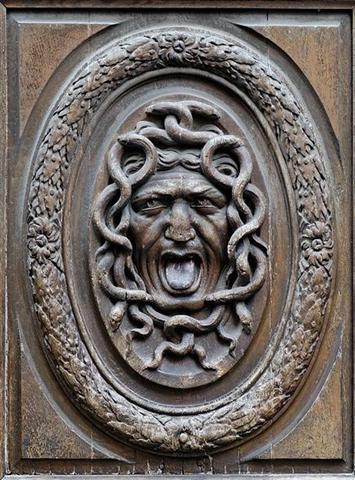 |
|
Oct 31 |
Nov 1 (Samhain) |
2 (306) |
3 |
|
ZUBEN ELGENUBI = α
Librae
(224.2), ξ Bootis, ο Lupi (224.5) |
KOCHAB (Kakkab,
Babylonian for Star) = β Ursae Min.
(225.0),
ξ Librae (225.7) |
KE KWAN (Cavalry Officer) =
β
Lupi
(226.3),
KE KWAN =
κ
Centauri (226.4),
ZUBEN ELAKRIBI (Claw of the Scorpion) =
δ
Librae
(226.8),
π¹
Oct.
(226.9)
*185.0 = *226.4 - *41.4 = "Sept 22 (265) =
equinox |
ω Bootis (227.2),
NEKKAR (Herdsman) = β Bootis
(227.3), σ Librae (227.5), π² Oct. (227.7),
NADLAT (Mean Little Ones) = ψ Bootis
(227.8), π Lupi (227.9)
*227 - *35 = *192 (MIMOSA) |
.jpg) |
When the Sun reached to the ancient end of the Eridanus
river, at Acamar (*43) - 20 days after the
modern end at Achernar (*23) - he was
finished (haati)
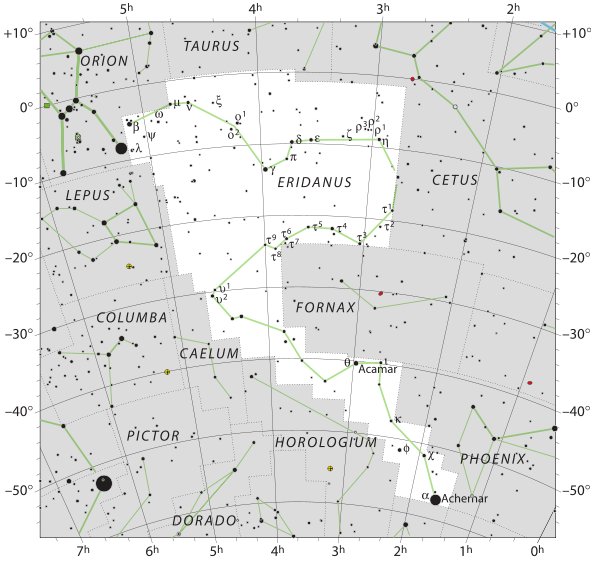
 |
 |
 |
|
haati |
manu haati - kava |
DENEBOLA |
|
May 6 |
7 |
8 (*48) |
9 |
10
(130) |
11
→ Jan 31 |
 |
 |
 |
 |
 |
 |
|
Ea5-38 |
Ea5-39 |
Ea5-40 |
Ea5-41 (177) |
Ea5-42 |
Ea6-1 |
|
tana haati mai - te garu |
te kotia |
o te garu |
kotia |
hokohuki - koia ra |
Kua oho mai kua hokokuki mai - kua moe |
|
Garu. Surfing.
Garuru, to feel dizzy, seasick; to
have a sudden headache: he garuru te
puoko. Vanaga. 1. To swim over the
waves (see aruaru 2). P Mgv.:
garu, foam, froth. Mq.: kaú,
naútai, wave, billow. Pau.:
puhi-garu, a bubble of water. In
aruaru 2 is found another galu
derivative. The sense of this garu
is nowhere else encountered; the stem
means simply the waves and involves no
idea of swimming. We note, however, the
Viti galo to swim; un uncertain
identification. 2. Garu hoa, a
friend of either sex. PS Sa.: galu,
an number of young persons (galu
teine, galu taulele'a). To.:
? gauta, many in number. Data
fail for the comparison. The plural
sense of the Samoan does not appear in
Rapanui. The Tongan form involves
the rather infrequent loss of an inner
l and leaves the latter element
ta unexplained. Garuru,
headache, vertigo; puoko garuru,
migraine. P Mgv.: garuru, nausea
that persists. Mq.: naúú, kaúú,
headache, migraine. Churchill. [E:32]
Papa. 1.
Underground rock; motionless; rocky sea
bottom; large flat stone; figuratively:
tagata papa important man, author
of great works. 2. Wooden plank
currently used much like a surf-board in
the sport called garu; it was
formerly called papa gaatu mo te
garu, because it was made from dry
totora leaves woven into the
shape of a plank. 3. To line up things
side by side on a flat surface, for
instance, to line up fish on top of a
flat stone. Vanaga. Shoulderblade.
Papapapa, a chill, to shiver, to
tremble, to shudder. Churchill.

Koti. Kotikoti.
To cut with scissors (since this is an
old word and scissors do not seem to
have existed, it must mean something of
the kind). Vanaga. Kotikoti. To
tear; kokoti, to cut, to chop, to
hew, to cleave, to assassinate, to
amputate, to scar, to notch, to carve,
to use a knife, to cut off, to lop, to
gash, to mow, to saw; kokotiga kore,
indivisible; kokotihaga, cutting,
gash furrow. P Pau.: koti, to
chop. Mgv.: kotikoti, to cut, to
cut into bands or slices; kokoti,
to cut, to saw; akakotikoti, a
ray, a streak, a stripe, to make bars.
Mq.: koti, oti, to cut, to
divide. Ta.: oóti, to cut, to
carve; otióti, to cut fine.
Churchill. Pau.: Koti, to gush,
to spout. Ta.: oti, to rebound,
to fall back. Kotika, cape,
headland. Ta.: otiá, boundary,
limit. Churchill.
Tia. (Tiha G) .To
sew. T Mgv.: tia, to prick, to
pierce, to stick in. Churchill. Ta.:
tia, the lower belly. Mq.:
tia-kopu, pubes. Ma.: tia,
the lower abdomen. Tiahonu, to
piece together. Mq.: tuhonu, to
mend, to patch. Ma.: tuhonu, to
join. Churchill. Mq.: tiaha,
drinking cup. Ha.: kiaha, a cup,
a mug. Tikao, to dig out, to
disembowel. Ma.: tikaro, to dig
out of a hole. Churchill. |
|
ι
Persei (46.1),
MISAM (Next to the Pleiades) =
κ
Persei
(46.2),
GORGONEA QUARTA =
ω
Persei
(46.7),
BOTEIN (Pair of Bellies) =
δ
Arietis
(46.9) |
ζ Arietis (47.7) |
ZIBAL (Young Ostriches) = ζ
Eridani (48.0),
κ
Ceti (48.9) |
τ Arietis (49.7) |
ALGENIB PERSEI = α Persei (50.0), ο Tauri (50.2), ξ Tauri (50.8)
GIENAH (γ Corvi) |
σ Persei (51.6) |
|
Nov 4 |
5 |
6 |
7 |
8 |
9 (313) |
|
15h (228.3)
ZUBEN HAKRABIM (Claw of the Scorpion) =
ν
Librae
(228.3),
λ
Lupi (228.9) |
ω
Oct. (229.3),
ι
Librae (229.6),
κ
Lupi (229.7),
ζ
Lupi (229.8) |
Al Zubānā-14b (Claws)
χ
Bootis (230.3),
PRINCEPS =
δ
Bootis
(230.6),
ZUBEN ELSCHEMALI (Northern Claw) =
β
Librae
(230.8) |
μ
Lupi,
γ
Tr. Austr.
(231.3), ο Librae (231.8) |
ο
Cor. Borealis (232.0),
δ
Lupi (232.1),
φ¹,
ν²
Lupi (232.2),
ν¹
Lupi (232.3),
ε
Lupi (232.4),
φ²
Lupi (232.5),
PHERKAD (The Dim One of the Two Calves)
=
γ
Ursae Min.
(232.6),
ε
Librae (232.7),
η
Cor. Borealis (232.8),
υ
Lupi (232.9)
*191.0 = *232.4 - 41.4 |
ALKALUROPS (The Herdsman's Lance) =
μ
Bootis
(233.1),
ED ASICH (Male Hyena) =
ι
Draconis
(233.2) |
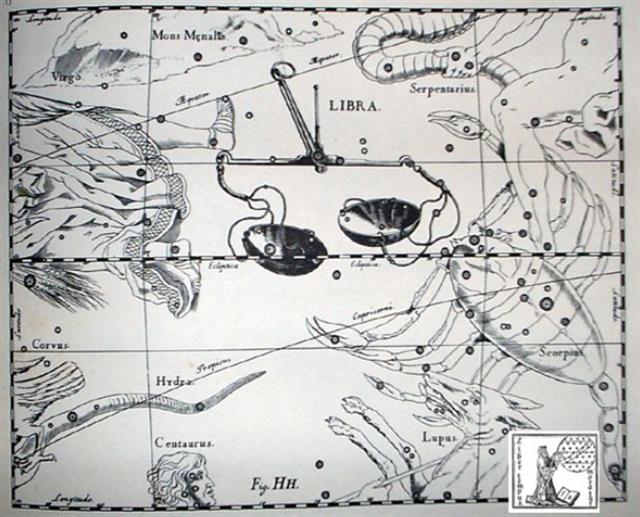 |
To mind comes the
Entrail Snatcher,
when time no longer was running
linearly as it should but in a
chaotic fashion:
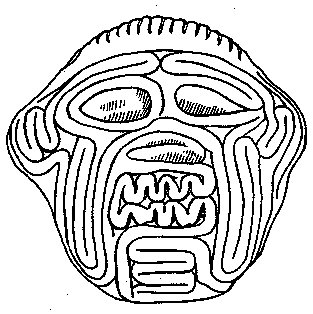
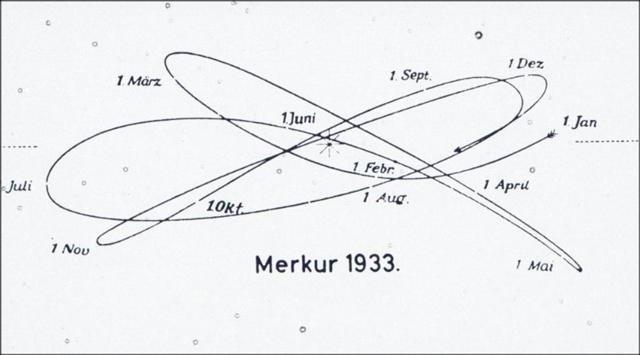
... At the front
wall of the house she caught sight
of some poor human beings, their
faces were one broad grin - they had
no entrails. Thus she now sat there.
At last, after some time, the Moon
entered, and he now said: 'Look at
those poor fellows there without
entrails, they are those my cousin
has deprived of their entrails!'
He had given one of them something
to chew, but as usual it fell down
through him, where the entrails had
been removed. Whenever they
swallowed something, they had chewed
a little, it fell right through
them. The Moon now said to her:
'Look here! My poor cousin, the
entrail-snatcher, he will surely
come in to take away thy entrails,
but now listen how to act. Thou must
begin to blow and at the same time
to thrust thy hands in under the
front flap of thy fur coat, holding
them so that they resemble a bear,
then he must take himself off. Do
thus, whenever thou art on the point
of smiling!' Thus he told her to act
...
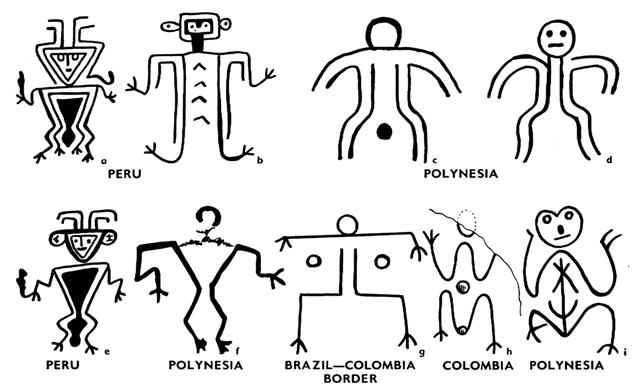
|

















.jpg)










